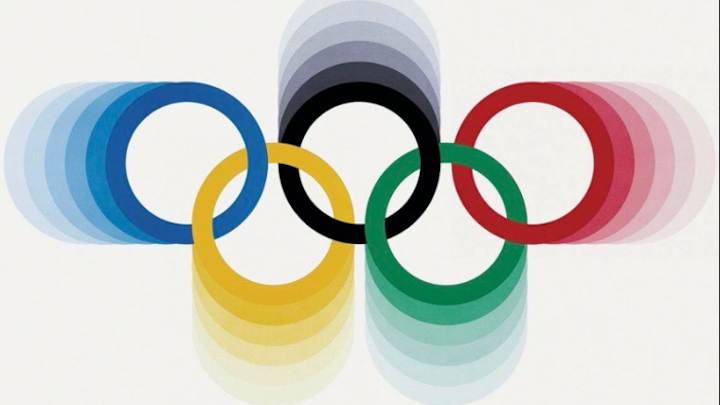Cal at the Olympics: Jamaica's Marilyn Neufville Was the Bears' First Female T&F Olympian

Most Cal fans have never heard of Marilyn Fay Neufville. She is likely unfamiliar to all but the most serious of track and field enthusiasts.
But Neufville occupies a special niche in Cal athletics history.
A native of Jamaica, she set the world record for the 400-meter dash in 1970 at the age of 17. From the country that later brought us the incomparable Usain Bolt, Neufville remains the only Jamaican woman to ever set an outdoor world record in the sport.
And in 1976 at Montreal, she became the first Cal woman to compete at the Olympic Games in track and field.
Neufville’s story is sometimes complicated and sometimes controversial. Now 68, she lives in England and apparently still is an active member of the Cambridge Harriers running club in the Greenwich and Bexley boroughs of Southeast London.
But as Camryn Rogers prepares to become just the eighth Cal woman to compete in track and field at the Olympics, representing Canada in the hammer throw, it’s worth looking at the unlikely career of the first to do so.
Neufville, who did not respond to attempts to reach her for an interview, was born in the Hectors River area of the Portland Parish near the coast in northeastern Jamaica. American film icon Errol Flynn once owned a large estate in the region.
When she was eight years old, Neufville emigrated to Great Britain and began her running career. She won multiple junior national titles in the sprints when she was 15 years old and at 16 made her international debut, running on Britain’s 4x400 relay in a meet against West Germany at Hamburg.
By 1970, she had lived in Britain for a decade but Neufville caused a stir when she opted to represent her native Jamaica that summer at the British Commonwealth Games in Edinburgh, Scotland.
On July 23, wearing glasses and decked out in green shorts and a bright yellow Jamaican singlet, Neufville circled the track in 51.02 seconds, crushing the previous world record for 400 meters by seven-tenths of a second. She took more than a second off her personal best and beat runner-up Sandra Brown of Australia by more than 2 1/2 seconds.
The performance thrust Neufville into the global sports spotlight. The Spanish newspaper Marca, below, celebrates her achievement on its lead sports page.
The next day, perhaps fearing media pushback for not representing England in the meet, Neufville declined to answer questions during a news conference with 40 reporters.
In his story, “Marilyn Fay Neufville: World Records, Controversy, Injuries in the Young Jamaican Athlete's Athletic Life,” here’s how author Jonathan Musere said the Associated Press reported the episode:
"At a bizarre news conference (Neufville) … sat with her Jamaican team manager, Norman Hill … and just silently shook her head at every question.”
Hill explained Neufville was wary of saying anything that could jeopardize her future in the sport with British officials. Keep in mind, she was 17 at the time and suddenly having to defend a position that was causing a political uproar in her adopted country.
Neufville’s world record — officially ratified at 51.0 — stood for two years before it was equaled by Monika Zehrt of East Germany. It was eclipsed in 1974 by Irena Szewińska, who ran 49.9, and the Polish athlete went on to break the record twice more.
In March of 1971, Neufville added a world record in the indoor 400 meters, running 53.1 at Vienna. Outdoors that year she captured gold medals at the Central American and Caribbean Championships in Kingston, Jamaica, and the Pan American Games in Cali, Colombia.
While she was named Jamaica’s Sports Woman of the Year in both 1970 and ’71, controversy involving which country she chose to represent at international competitions continued to swirl around her.
She moved to Los Angeles to train for the 1972 Munich Olympics, but in January of that year suffered an Achilles tendon injury during an indoor race. The debate over whether she would wear the colors of England or Jamaica was now moot.
Later in ’72, Neufville enrolled at Cal — two years before the Bears even sponsored a women’s track and field program.
She was healthy enough to compete at the 1974 Commonwealth Games at Christchurch, New Zealand, but she finished in sixth place and her 54.04 time — three seconds slower than her 1970 world record — suggests she hadn’t regained her pre-injury form.
In ’1975 at Cal, Neufville finished fourth in the 880-yard run at the AIAW outdoor nationals, before the NCAA folded women’s sports into their program.
A year later, she finally made it to the Olympics, at 23 years old and six years removed from her peak. At the Montreal Games, she advanced through the first round of qualifying with a time of 52.93.
But an injury forced Neufville to withdraw before the quarterfinals, ending her quest for an Olympic medal. Poland’s Szewińska won the gold with a world-record time of 49.28 seconds. The current women’s record is 47.60, held by East Germany’s Marita Koch since 1985.
Neufville remains a significant figure in the history of Jamaican women’s track. In 2013 she was honored with the country’s Commander of the Order of Distinction award.
She made her mark in Berkeley, too. Forty-five years after Montreal, Neufville’s 52.93 clocking in the 400 remains No. 4 on Cal’s all-time list.
Follow Jeff Faraudo of Cal Sports Report on Twitter: @jefffaraudo

Jeff Faraudo was a sports writer for Bay Area daily newspapers since he was 17 years old, and was the Oakland Tribune's Cal beat writer for 24 years. He covered eight Final Fours, four NBA Finals and four Summer Olympics.